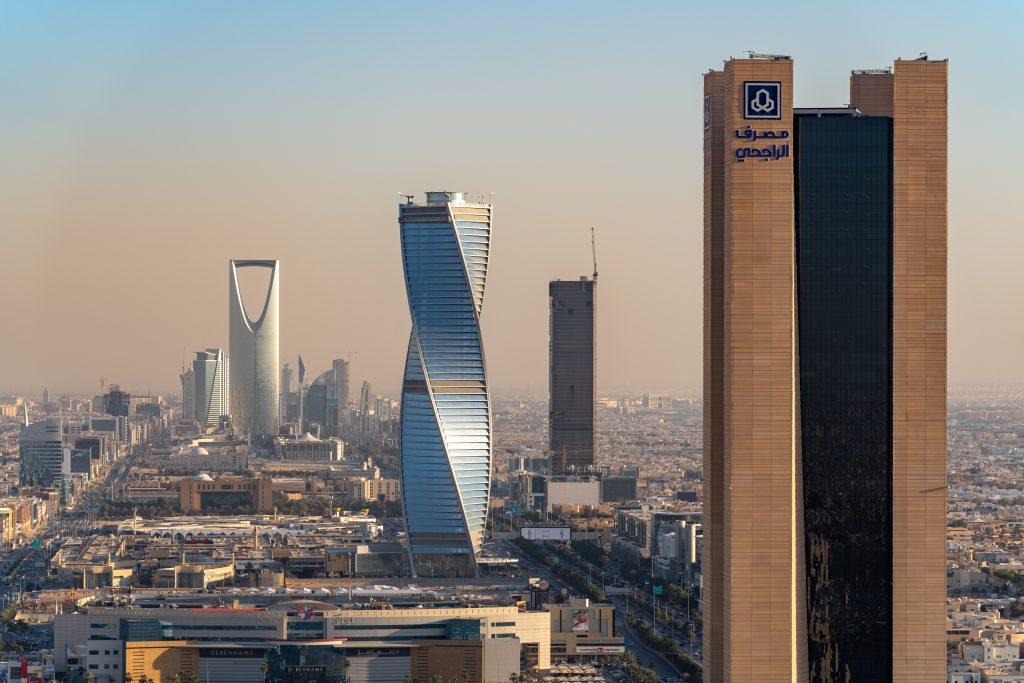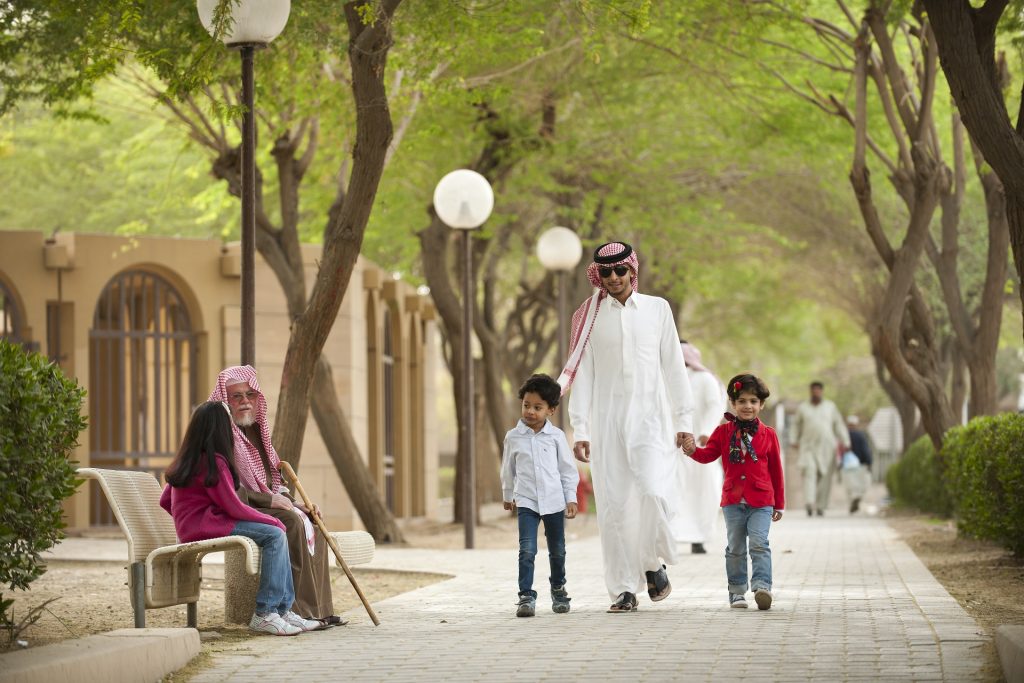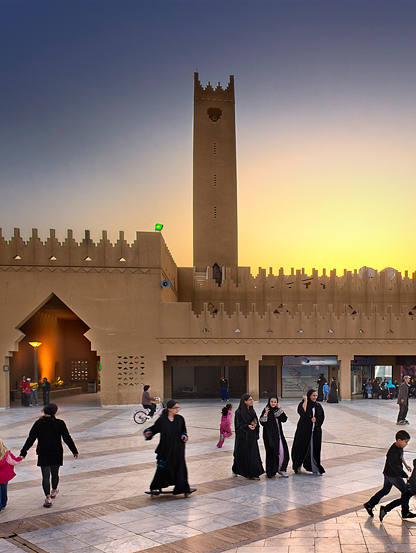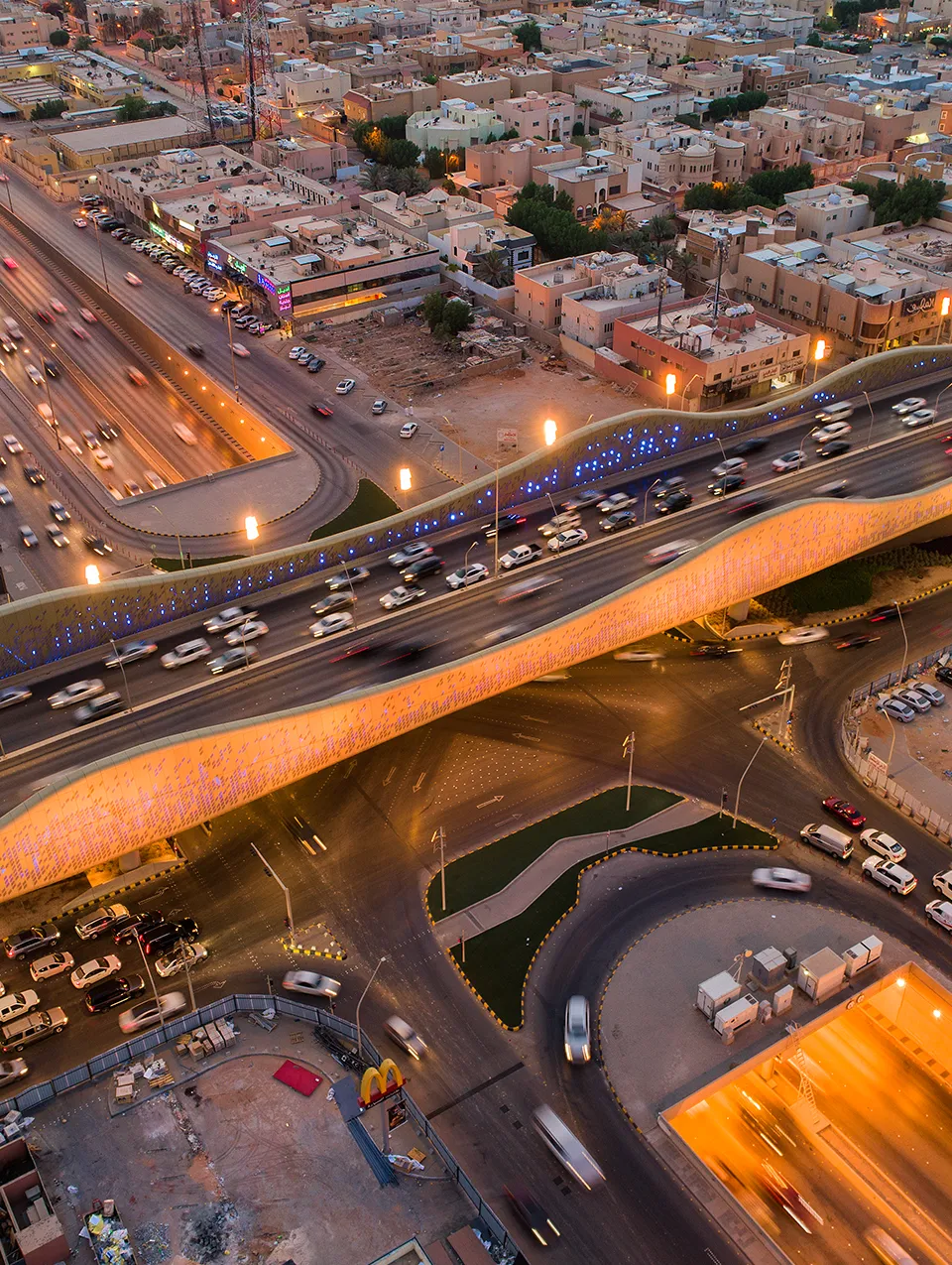HOME / PROGRAMS AND PROJECTS
Public Services Strategy in Riyadh
Public Services Strategy in Riyadh
The Royal Commission for Riyadh has approved the provision and coordination of Riyadh’s Public Services Strategy, which is one of the strategic planning programs and is considered a reference for other government agencies involved in it, in response to the city’s development in the demographic and urban aspects. In keeping with the significant expansion in the sectors of health, education, information technology and economic and social development and the need for this to be reflected in the city’s operational plans for public services, in line with Saudi Vision 2030 one of whose objectives is to rank 3 Saudi cities among the top 100 cities in the world.
The Commission has also developed advanced planning standards for public services in coordination with the participating authorities, as it is the main reference for land planning and distribution of service sites in the city of Riyadh. The “Riyadh Public Services Portal” has been launched to monitor and update public services data periodically and continuously.

Program Objectives
Riyadh City Public Services Program aims to develop a solid plan to coordinate, update and monitor the development of public services at the city level. Including mosques, educational, health, security, cultural, and recreational services. Determining the availability of such services and assessing their current and future needs. In addition to the inventory of space lands allocated to public services and identification of beneficiaries, distribution according to their intended usage, development of a spatial distribution model for services, the establishment of a database covering all information and spatial maps of public services, providing decision-makers with a clear picture of the level of availability and quality of services in the city, in order to meet the increasing demand for such public services and contribute to raising the city’s quality of life index.
Program Stages
The environmental education and rehabilitation projects include the following features:
The Public Services Program went through major stages, starting with the first executive plan for the coordination and provision of public services in Riyadh City in 2008 and approved by the commission in 2012, where an integrated database was established that collects public services in Riyadh from participating and service providers in the city “, followed by the second operational plan for the coordination and provision of public services in 2015, during which a field survey of all public services was conducted, where the geographical locations of approximately 11 thousand services and their metadata were verified. In addition to developing the analytical model of service level using GIS-related technologies (GIS), in order to assess the availability and distribution of services and contribute to the selection of optimal locations for public service lands to meet the city’s current and future needs according to the highest planning standards.
The work in the Public Services Program was completed in 2019 and approved by the commission, which included updating the database and developing the analytical model of electronic services and applications, service atlases and the executive program.
Work has been under way since mid-2022 in the current phase of the program, which includes the development and updating of the database in coordination with the participants, the development of the analytical model, applications and analysis tools for the evaluation of public services.

Participants Technical Committee
A technical committee of 23 participating entities has been formed, including 18 public service providers, in addition to 5 entities whose work intersects with the scope of the program’s work. Several workshops and coordination meetings have been held aimed at publicizing the program, discussing strategies and directions for service providers, and agreeing on a mechanism to update their respective data. The program’s participants include:
- Ministry of Health
- Ministry of Education
- Ministry of Islamic Affairs, Dawah and Guidance
- Ministry of Human Resources and Social Development
- Ministry of Justice
- Ministry of Culture
- Ministry of Sport
- Riyadh Municipality
- General Entertainment Authority
- Saudi Red Crescent Authority
- Ministerial Agency of Civil Affairs
- Riyadh Police
- Riyadh Traffic
- General Directorate of Civil Defense
- Riyadh Region Passports
- Saudi Post
- Technical and Vocational Training Corporation
- Riyadh Chamber
- Quality of Life Program
- National Center for Public Agencies Performance Measurement
- General Authority for Statistics
- General Real Estate Authority
- Ministry of Interior
Types of Public Services in Riyadh City
The program is concerned with the study of public services provided by government and private sectors in Riyadh. Including mosques, public and private schools, colleges, universities, institutes and technical and vocational training colleges and security services from police, traffic, civil defense, passport and civil affairs agencies. In addition to health services from primary care centers, general and specialized hospitals, medical cities, doctors’ clinics and pharmacies and Red Crescent, recreational services, including but not limited to parks at all planning levels, starting with children’s playgrounds through neighborhood gardens, municipal squares, playgrounds and parks and cultural services from libraries, museums, theatres and cultural centers, social services from social centers, associations, charities, cooperatives and social development committees and administrative services such as municipalities, administrative centers, labor offices, courts, notaries and chambers of commerce, as well as main and subsidiary postal centers and recreational and commercial services.

Program Outcomes
The program includes a number of outcomes, that are based on the updated geographical database of public services which is updated periodically. The program’s outcomes include:
- Developed analytical model for public services.
- Electronic applications (e-portal, performance indicator board, public service smartphone applications).
- Land Bank for public services.
- Atlases of distribution for current and future services.


